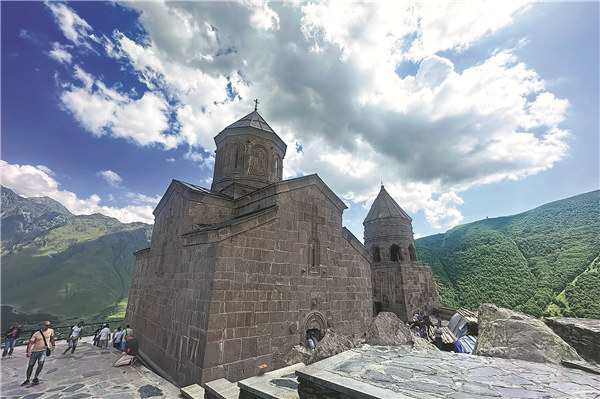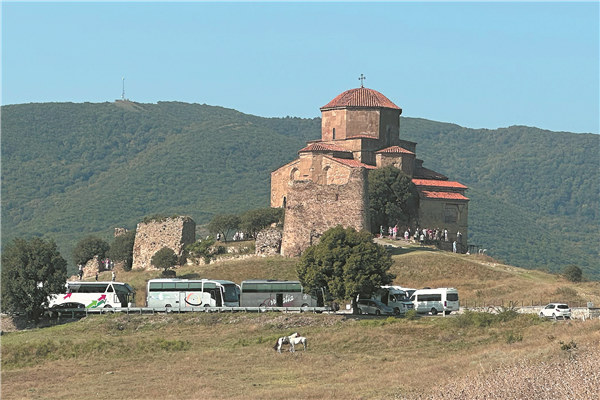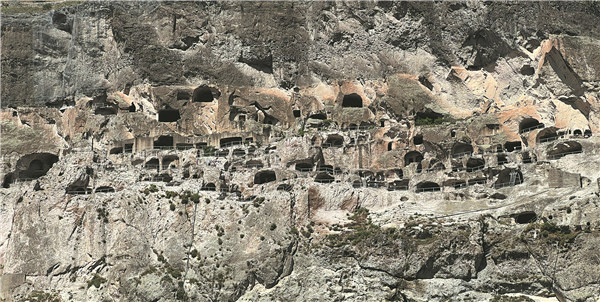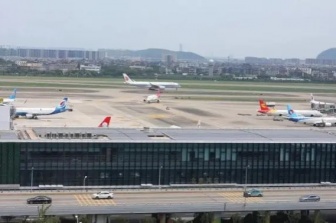
Georgia's intoxicating blend of culture, history and beauty spots has something for every type of tourist
Where Europe and Asia meet, magical Georgia sits on the southern slope of the Greater Caucasus mountain range, whose snowcapped peaks run from the Black Sea to the Caspian.
The mountainous country is the queen of the Caucasus. For the past decade, it has slowly been making a reputation for itself among those in the know for its unique combination of ancient and modern attractions, natural beauty, and rich and proud cultural traditions.
Though relatively small in terms of area, Georgia offers a huge variety of scenery and activities. While there's no need to limit yourself to one region, you're best off deciding what kind of trip you want to have and then choosing a few parts of the country to focus on.
Rarely has such a small country appeared so enormous in scale upon arrival, with a glimpse of Europe's highest mountain range never far away and an almost limitless variety of landscapes that few countries five times the size could hope to rival.

Starting from the capital
Quickly beguiling anyone who visits, the Georgian capital offers up a fascinating Old Town, a wealth of avant-garde Soviet architecture, traditional sulfur baths and an array of medieval churches.
The capital city, Tbilisi, is straight from the pages of a Gothic fairy tale. A deep valley forms the backdrop to brightly colored turrets, cobblestone streets and a burgeoning art scene, while warm Georgian hospitality permeates the mix of contemporary and traditional restaurants serving up local favorites.
Spread out along the narrow valley of the Mtkvari River, Tbilisi is the kind of place you have to get up high to really appreciate — try taking the cable car to the Sololaki ridge where you'll find the Narikala Fortress and iconic Mother of Georgia.
You can also take the funicular to the city's highest point, Mount Mtatsminda, where, on top of stellar city views, you get a fairground and a huge Ferris wheel.
Old Tbilisi is a captivating labyrinth of winding streets, historic buildings and vibrant culture. Immerse yourself in the city's rich history as you explore ancient churches, traditional bathhouses, and architectural gems. Savor delicious Georgian cuisine, indulge in local wine and soak up the warm hospitality of the locals. It's a place where old-world charm seamlessly blends with modern-day energy, offering a truly unforgettable experience.
Tbilisi is also the best place in Georgia to eat out, with dozens of innovative menus available at establishments such as Barbarestan, Azarphesha, Alubali and Keto& Kote.
This is also one of the best places in the country to sample a range of Georgia's famous wines and take part in its thumping nightlife. Tbilisi offers plenty to keep you entertained for days, but can also serve as a base from which to do day trips to various other parts of central Georgia.

Magic town
It is said that there's magic in the air in Sighnaghi and that's not just down to its high altitude and the views it has into the valley below. As a matter of fact, Sighnaghi is perhaps Georgia's single most attractive town, with an amazing position on a hilltop facing the snowcapped Caucasus looming across the vast Alazani valley.
The heart of Georgia's ancient viticulture lies in Sighnaghi. The town was originally built as a fortress that played a significant role in protecting the city from invasions. You can still see parts of the old defensive wall.
Sighnaghi Fortress played a crucial role in the defense of the region. The construction of the fortress began in the late 18th century during the reign of King Erekle II, who ruled the Kingdom of Kartli-Kakheti. He built a 4-kilometer defensive wall with several gates and towers to protect the city from attacks.
The fortress was strategically positioned on a hilltop, offering a vantage point to monitor the surrounding areas and act as a warning system.
Full of 18th- and 19th-century architecture and with a vaguely Tuscan feel, Sighnaghi has seen a comprehensive renovation program in recent years. It has also seen scores of hotels open as the local population reorients itself toward the tourist dollar.
The good news is that despite the tour groups and quad bikes, the town has retained its easy charm and is still a lovely place to spend a couple of days.
You can take a walk along the well-preserved city walls and visit the town museum, which has one of the best collections of paintings by Georgia's most famous artist, Niko Pirosmani.
Afterward, you can settle in at one of Sighnaghi's many wine bars to sample the results of the grape harvest in the country's premier wine-producing region.
Sighnaghi is also the city of love because of its wedding house where couples can get married at any time of day. As a result, it has become a popular destination for new couples.
Kakheti, the region surrounding Sighnaghi, is also renowned for its winemaking traditions. You can visit local wineries and indulge in wine-tasting sessions to savor the flavors of Georgian wines. You can also learn about the winemaking process and the unique Qvevri method, which involves fermenting wine in large clay vessels buried underground.
The local market is one of the fun things to do in Sighnaghi. It is a great place to get a feeling of local life and buy some wine. It's sold in reused plastic soda bottles that look dodgy. Don't be fooled, because the quality is very good.

Iconic church
Stepantsminda is a small urban settlement located in the north of Georgia in Mtskheta-Mtianeti Province, directly at the foot of majestic Mount Kazbek. Until 2007, the town was called Kazbegi. It got this name in honor of the Georgian writer Alexander Kazbegi, a native of this land.
Stepantsminda is considered a popular bathing therapy resort. The famous Georgian Military Road, which connects Russia and Georgia, passes through the town.
The town is a base for some wonderful walking and mountain biking. What 20 years ago was just a big village has now grown into a sprawling town, with guesthouses and hotels everywhere and tourists arriving by the busload in the summer months.
While this may not have added to Stepantsminda's charm, the town's location remains stunning and it's still easy to escape the crowds and explore the surrounding mountains and valleys in peace.
As an iconic building, the silhouette of the hilltop church, Tsminda Sameba, against the glacier of Mount Kazbek is a sight that never ceases to amaze, despite its reproduction on a million postcards.
This 14th-century church 2,200 meters above sea level in Stepantsminda has become almost a symbol of Georgia. This is down to its photogenic setting, with the mighty Mount Kazbek rising behind it, and for the fierce determination involved in building it on such a lofty, isolated perch.
Tourists used to take a shuttle car to the church years ago and the price was not cheap. But now a circuitous new road leads up to the church that even a small car can complete without difficulty. However, you can still walk up to the church in one to two hours from town. As a reward, the views back over Stepantsminda are incredible.
Time for a visit
When to visit Georgia hinges on what type of trip you're planning. Most importantly, if you want to visit the mountains and do any serious hiking, then June, July and August are your best bets. That said, these three months can be uncomfortably hot in the lowlands, where Georgia's three main cities, Tbilisi, Kutaisi and Batumi are found.
If you're after more urban pursuits and are keen to avoid the crowds and high season prices, then May and September are two outstanding months to travel.
Due to its location, nearly all visitors to Georgia arrive by plane and it's never been so easy to reach the country.
Tbilisi's modern airport boasts a dozen flights a day from major cities in Europe, as well as several daily connections to the Middle East and Asia. In contrast, the David the Builder Kutaisi International Airport near the centrally located city of Kutaisi has created a niche as the country's low-cost airline hub and is well-connected to other European airports.
Once you've arrived, you'll have to decide between making your way around the country by privately run minibuses known as marshrutky, which serve specific routes, or by self-driving a hire car, which is pricier, but offers you unparalleled freedom.
In Tbilisi, the two-line metro system is a good way to get around, while taxi apps are affordable.
Seven things to know before visiting:
1. Give yourself plenty of time
Georgia appears small on a map, leading some first-time visitors to assume it can be seen in just a few days. But due to a combination of mountainous terrain and infrastructural shortcomings, that's not the case — travel times between regions are significant.
2. Pack clothes for all climates
The summer can be stiflingly hot in the lowlands, but as soon as you reach any altitude, let alone the High Caucasus themselves, the temperature plummets and you'll need a fleece and jacket, even in July.
3. Be prepared for some rough roads if you're driving
Georgia's roads have improved immeasurably in the past 20 years and the vast majority are now sealed, though they remain predominantly single-lane, frequently studded with potholes and lacking in markings or lighting at night.
4. Keep an eye out for sheepdogs
Sheepdogs in the Caucasus are bred to be fierce and can potentially be dangerous, so give them a wide berth when hiking in the mountains and carry a stick if possible.
5. Take it easy on the chacha
Georgia's far stronger version of grappa, chacha is the national drink and you'll almost certainly run into it during your visit.
6. Don't toast with beer
Georgians only toast their enemies with beer, so make sure you have a glass of wine or chacha to hand if you're lucky enough to attend a traditional Georgian feast or dinner party.
7. In big cities, a small tip will be appreciated
Hot on the heels of international tourism, tipping has now arrived in Georgia, though it's still limited to Tbilisi, Batumi and Kutaisi for the most part.

Korean vlogger dedicated to documenting the real China

Last-minute turnovers cause China's loss to Spanish club Joventut in basketball friendly

Hall of Famer O'Meara chooses Pebble Beach to call it quits

China activates emergency response to flooding

Kane fires four in 9-goal rout of Zagreb

Athletics legend Coe to vie with six rivals for IOC presidency